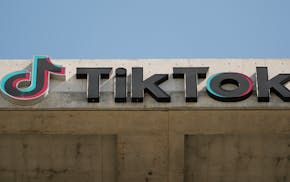Best Buy Co. Inc. may be eager to put Brian Dunn in the rearview mirror, but questions continue to linger over the exit of its former CEO.
The company's decision to pay Dunn a separation agreement worth $4 million -- presumably to compensate him for not working at a competitor for three years -- troubles former top executives and corporate governance experts.
For one thing, Best Buy continues to insist that Dunn resigned, which, if accurate, would make him ineligible to receive any severance money, according to documents filed with the Securities and Exchange Commission.
In truth, Dunn's separation package more closely resembles to what he would receive under an involuntary termination without cause.
"Why is Brian Dunn getting a severance package?" said Brad Anderson, who preceded Dunn as CEO.
In corporate governance speak, "cause" usually means a CEO engaged in particularly severe misconduct, such as fraud or theft. So if company fires a CEO "with cause," that automatically wipes out any possibility of compensation.
But "it's not always clear someone has cause to fire someone," said Laura Thatcher, who heads the executive compensation practice at the law firm Alston & Bird in Atlanta. "Boards usually negotiate something in between to avoid litigation."
In addition, Dunn's three-year noncompete agreement is much longer than what's considered standard. In any case, executive recruiters say they doubt any company would hire Dunn given Best Buy's poor financial performance under his leadership and his alleged workplace misconduct.
A recent report by the board's audit committee alleges that Dunn, who is married, engaged in an inappropriate relationship with a female employee.
While investigators could not prove Dunn and the woman had a sexual affair, "the relationship nevertheless reflected extremely poor judgment by the CEO," the report said. "His conduct toward the female employee damaged employee morale and created unnecessary distraction in the workplace."
Yet Best Buy ultimately agreed to pay Dunn a package worth more than $4 million, including a $2.85 million "severance payment," a $1.14 million performance bonus for fiscal year 2012, and restricted stock.
'Voluntary termination'
Best Buy officially classifies Dunn's departure as a resignation. But CEOs who leave the company under a "voluntary termination" are not entitled to any severance money, the company's proxy statement said.
"If the company pays something different" from what's stated in the proxy, "you can expect some questions from investors," Thatcher said.
In Dunn's case, the board exonerated him when it came to the most serious allegations: that he used company assets such as aircraft for his personal use. Nevertheless, the company still had good reason to terminate Dunn with cause, said Charles Whitehead, a professor of law at Cornell University.
The report noted that Dunn allegedly used his influence with a vendor to secure tickets for the female employee to attend a show in Las Vegas. While not a physical thing like an aircraft, a CEO's clout is still very much a company asset, Whitehead said.
"I don't think the vendor gave Brian Dunn tickets because he's such a nice guy," Whitehead said.
The most unusual feature of Dunn's exit package is the noncompete agreement. In exchange for severance, departing CEOs usually agree not to work for a direct competitor for a year or two.
In Dunn's case, the former CEO agreed not to work at rivals such as Amazon or Wal-Mart for three years, an unusually long period and three times what's spelled out in Best Buy's proxy statement. In fact, companies today have been shortening the length of noncompete agreements, experts say.
Best Buy has justified paying Dunn's $4 million separation agreement largely on the grounds that the company needs to properly pay Dunn for his unusually long non-compete period. The company said it also wanted to honor Dunn's 25-year plus career at the retailer.
"The severance agreement recognizes his long years of service to the company, as well as previously committed payments and previously awarded stock," company spokesman Greg Hitt said in an e-mailed statement. "The board felt it was important to include an enforceable non-compete agreement for three years, compared to the one-year period that is standard for Best Buy executives."
But former executives say Best Buy wasn't nearly as generous with other top talent that left the company in recent years and under much better circumstances.
And headhunters who specialize in executive recruitment say it's unlikely that any major rival would hire Dunn, given Best Buy's weak performance of late and the alleged conduct that led to his departure.
Dunn "violated company policy," said Patricia Lenkov, the founder and CEO of Agility Executive Search in New York. "I don't think he will be on anyone's hot-prospect list."
If Dunn lies low, he might have a shot at a job with a private company or an investment firm but certainly not a Fortune 1000 company, Lenkov said.
"I don't think anyone will be picking him up," she said.
Thomas Lee • 612-673-4113
Biden administration moves to make conservation an equal to industry on US lands
Stock market today: Wall Street limps toward its longest weekly losing streak since September

